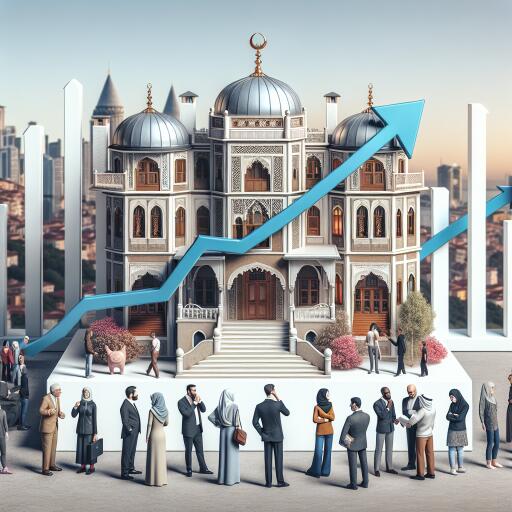Istanbul Property: Consequences of the Increase in the Minimum Requirement Limit for Turkish Citizenship by Investment
In a move that sent ripples across the real estate sector in Turkiye, the minimum investment requirement for obtaining Turkish citizenship through property investment saw a significant hike, moving from $250,000 to $400,000. This change, effective post-2018, has marked a pivotal moment for the country’s Golden Passport scheme and its appeal to foreign investors.
Initially, this adjustment to the Turkish Citizenship Programme regulations catalyzed a boom in foreign interest in the Turkish real estate market. This was notably evident in the record-setting housing sales to foreigners, which soared to nearly 50,000 transactions in 2019, according to data from TurkStat. Yet, a stark turnaround was observed following another round of regulatory adjustments in 2023, when sales to foreigners plummeted by about 67%, underscoring a significant downturn.
Opinions are divided on the impact these regulatory changes have had on property values within Turkiye. Some argue that the sudden spike in property sales to foreigners directly fueled an increase in property values. Others, however, believe that while foreign transactions have certainly been lucrative, they cannot be solely credited for the upward trajectory in housing prices.
Cemal Gokce, the Former President of the Chamber of Civil Engineers, identifies a direct correlation between foreign property acquisitions and rising housing prices. He explains, “The transaction of properties in foreign currencies, particularly in dollars and euros, has positioned these sales at the heart of construction firms’ pricing strategies, inherently pushing the market prices up.”
Despite the recent decline in foreign property purchases—attributed to the regulatory changes—it’s speculated that global dynamics might set the stage for a revival in Turkiye’s real estate market. The early 2024 data on property sales to foreigners illustrates a rebound, with Russians leading the pack with 411 house purchases in March, followed by Iranians, Ukrainians, and Iraqis. This diversity underscores a sustained global interest in Turkish real estate.
Murat Padar, the CEO of Istanbul Property, one of Turkiye’s leading real estate firms, describes the current state of property sales to foreigners as a period of “calmness”. Despite this, Padar affirms Turkiye’s prime position in the global property investment arena, largely credited to the Turkish Citizenship by Investment program. Unlike other countries, Turkiye’s program is renowned for its relative ease and accessibility, continuing to attract investors worldwide despite recent regulatory shifts.
The evolving landscape of Turkiye’s real estate and citizenship by investment scheme remains a topic of keen interest. As the market adjusts to these higher thresholds, the full impact on property values and foreign investment trends will become clearer. What remains evident is Turkiye’s enduring appeal as a prime location for real estate investment, backed by its strategic position and the comparative ease of its investment-driven citizenship pathway.
